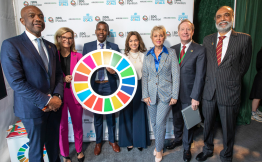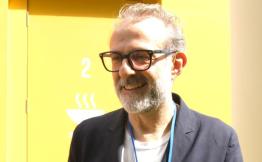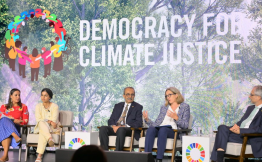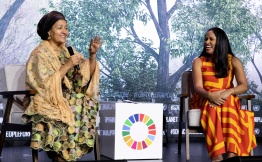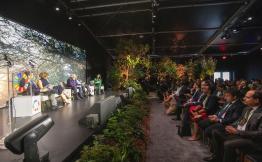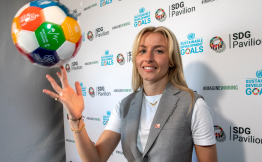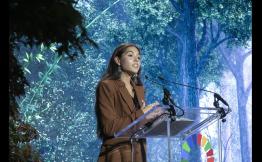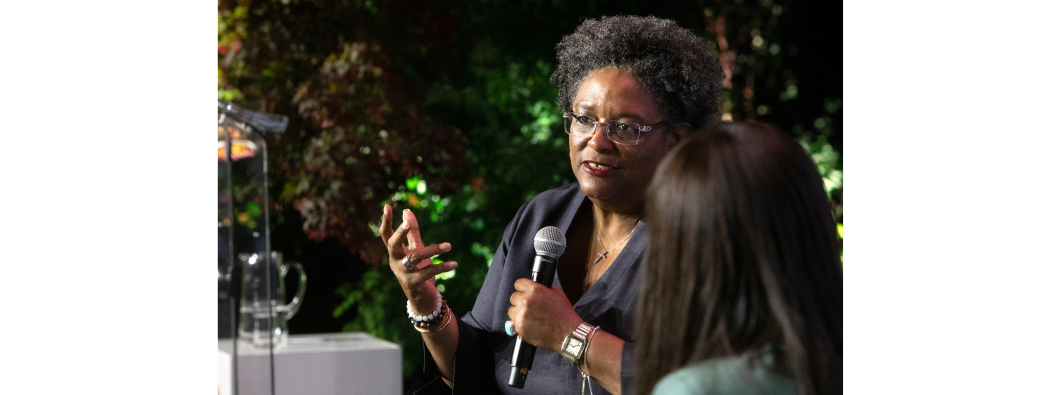
Growing pressure to accelerate financial reform
The global economy is facing multiple shocks that are threatening to further reverse progress on the Sustainable Development Goals (SDGs) and deepen inequalities. What are the next steps and how do we transform the international financial architecture to bring a fairer and more just future closer to reality?
World leaders and leaders representing development banks, the private sector, as well as foundations and civil society took part in the ‘Winning Strategies for Financing the SDGs’ event to discuss plans and tactics for tackling debt, the cost of capital, tax, integrating civil society, as well as special drawing rights and how to position SDG financing as the vehicle to achieve the Goals.
Mia Mottley, Prime Minister of Barbados, opened the session in a fireside chat with Folly Bah Thibault, Principal Presenter at Al Jazeera English, to discuss the urgency needed to address the ‘great financial divide’ which has sharply curtailed the ability of many developing countries to invest in recovery, climate action, and sustainable development.
"There is a dog at our heels, and we are not running fast enough,” Prime Minister Mottley said, adding that “Even if we are making progress, it is not accomplishment. There needs to be a complete debt write-off for low-income countries".
In a discussion focused on how to radically reform and strengthen global financial institutions to achieve the SDGs, Rémy Rioux, CEO at Agence Française de Développement and Chairman of the International Development Finance Club, said that the Global Goals remained the compass for organizations such as his, through to 2030 and beyond. All players in the financial system, he said, “need to play their part to break silos, and have a global discussion between central banks, standard setters and public and private finance.”
Douglas Peterson, CEO of S&P Global, argued for clear standards for what is defined as sustainable. “Right now, there are many different definitions and standards. We should start working on clear, simple standards to ensure that what is defined as ‘green’ is actually green."
The session concluded with a panel moderated by Kristen Sullivan, Global Audit & Assurance Sustainability and Climate Services Leader at Deloitte, looked at the ways that explored the role of non-state actors, in mobilizing finance around the SDGs.
Mark Suzman, the CEO of the Bill & Melinda Gates Foundation, explained that whilst philanthropic organizations can play a key role, the public sector needs to scale up investment. Now, he said, is the time to “put up or shut up” on the SDGs.
Mavis Owusu-Gyamfi, Executive Vice President at the African Center for Economic Transformation, said: “Africa is the youngest and fastest-growing population in a rapidly aging world”, highlighting that “if Africa youth are skilled and productive, the world will benefit from it".
UN SDG Advocate and screenwriter Richard Curtis underscored that everyone’s personal money is at the core of investment. "It's the money in our banks, almost more than government money, which is going to make a huge difference,” he said. "This is not a time to say ‘I am sure someone else will sort this out’. Whatever your job is, take this sense of urgency and try and do something radical.”
Watch the session HERE.
See more photos [HERE]




